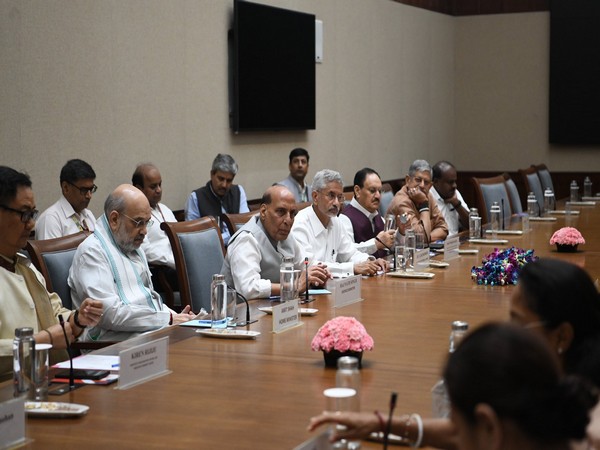The Indian government on Tuesday convened an all-party meeting chaired by External Affairs Minister S. Jaishankar to address the ongoing crisis in neighboring Bangladesh. The meeting follows Prime Minister Sheikh Hasina’s resignation and subsequent departure amid a violent uprising against her administration.
Jaishankar briefed political leaders on the situation and confirmed that India would ensure Hasina’s safety after her arrival at Hindon Air Base near Delhi on Monday, ANI reported, citing sources from the meeting.
In a post on X, Jaishankar said: “Briefed an All-Party meeting in Parliament today about the ongoing developments in Bangladesh. Appreciate the unanimous support and understanding that was extended.”
Jaishankar informed the leaders that the central government is in contact with the Bangladesh Army and will take appropriate action when necessary. He also said that there are 20,000 Indian nationals in Bangladesh and 8,000 have already returned. The Indian High Commission in Bangladesh remains operational, and the government continues to monitor and assist Indian nationals there.
The focus remains on protecting minorities, as emphasized during the meeting.
During the discussion, Leader of the Opposition in the Lok Sabha, Rahul Gandhi, inquired about India’s short-term and long-term strategies. The government acknowledged that the situation is evolving and will be continuously assessed.
Gandhi also questioned the possibility of foreign involvement in the crisis. The government assured that all potential angles are being investigated.
The crisis in Bangladesh has escalated rapidly, with reports indicating at least 300 deaths and thousands injured amid widespread violence. Hospitals in Dhaka, the capital, are overwhelmed, with Dhaka Medical College Hospital alone treating 500 patients with various injuries, including gunshot wounds.
The unrest began as student protests against the government’s job quota system and has evolved into a broader uprising against Hasina’s administration and the ruling Awami League party.
Following reports of Hasina’s departure, celebratory crowds were seen entering government buildings, including the Prime Minister’s residence and the Parliament building. There have been reports of looting and vandalism at these locations.
FRESH ELECTIONS PLANNED
Army chief General Waker-Uz-Zaman plans to meet the protest organisers at 12 noon local time (0600 GMT) on Tuesday, the army said in a statement, a day after Zaman announced Hasina’s resignation in a televised address and said an interim government would be formed.
Zaman said he had held talks with leaders of major political parties – excluding Hasina’s long-ruling Awami League – to discuss the way ahead and was due to hold talks with the president, Mohammed Shahabuddin.
An interim government will hold elections as soon as possible after consulting all parties and stakeholders, President Shahabuddin said in a televised address late on Monday.
He also said that it was “unanimously decided” to immediately release the opposition Bangladesh Nationalist Party (BNP) chairperson and Hasina’s nemesis, Begum Khaleda Zia, who was convicted in a graft case in 2018 but moved to a hospital a year later as her health deteriorated. She has denied the charges against her.
A BNP spokesperson said on Monday that Zia, 78, was in hospital and “will clear all charges legally and come out soon”.
Hasina, 76, had ruled since winning a decades-long power struggle with Zia in 2009.
(With inputs from agencies)




















